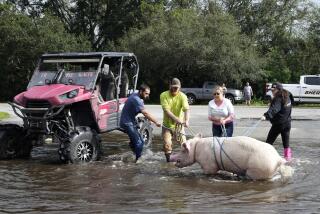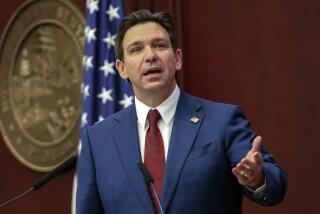Razor-close races and recounts — there’s a reason Florida’s elections are so fractured
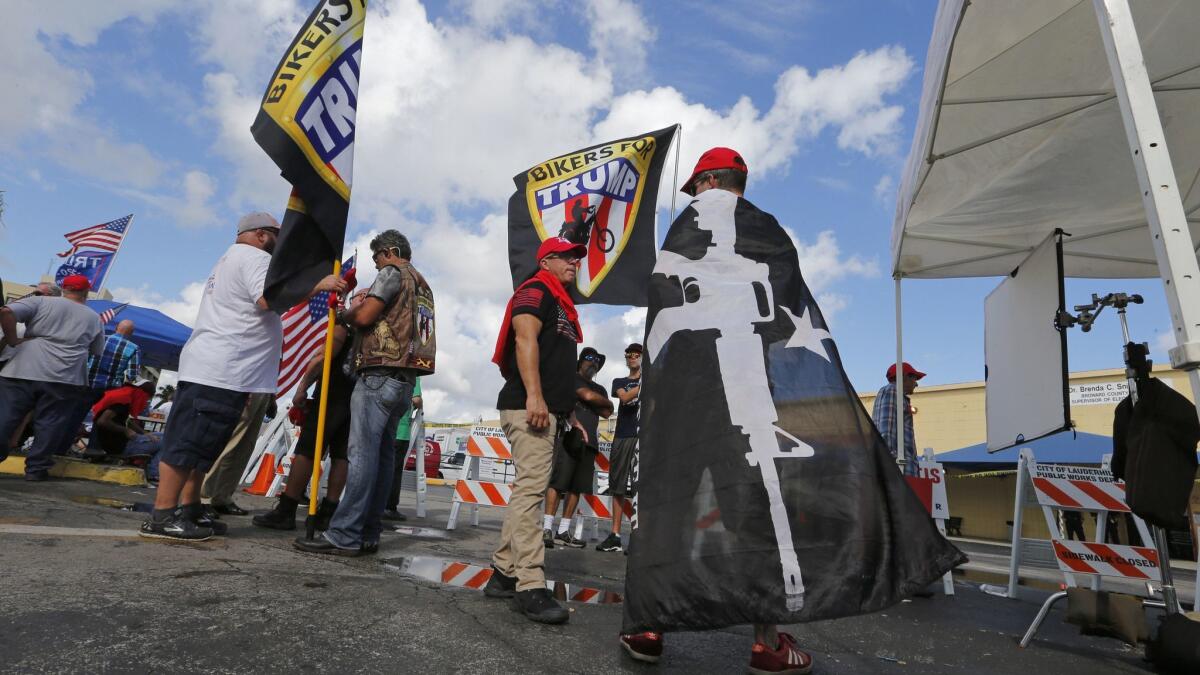
- Share via
Reporting from Orlando, Fla. — Jemele Hill, who covers sports, race and politics for the Atlantic, wanted to take advantage of Florida’s two-week early voting period. Only when she got to her Orange County polling location, she found that she had been taken off the voter rolls, which seemed odd since she’d checked her registration eligibility twice before flying to Florida.
Hill, who has been the target of negative tweets from President Trump after she called him a white supremacist while at ESPN, had tweeted a few weeks earlier that she was moving to Los Angeles but was going to Florida to vote for Tallahassee Mayor Andrew Gillum for governor. Hill, who has owned a home in Orlando since 2006, was told she had to fill out a provisional ballot, which was one of the 86 of 420 in Orange County that was accepted.
“Later that day, I got a call from an attorney in the elections office, who told me my vote had been flagged,” Hill said. “I asked by who? He just said it was the ‘red brigade.’ Given my controversy with the president, I couldn’t help but connect the dots.”
The incident captures both the passion and animus that exists in Florida, and underscores how the sides will take advantage of even the smallest opening to gain an edge in a state that is so evenly divided politically.
“If an unknown Democrat and an unknown Republican were to run against each other, they would both open up with 48% each,” said Steve Schale, a Democratic strategist who has written extensively on Florida’s divide.
His explanation is simple.
“Florida is a state, not a place,” Schale said. “People move here, but they still have the sensibilities of where they came from. Florida is where they live, but they never leave where they were. If you live in Texas, there is a pride of being a Texan. If you live in Pennsylvania, you are still this steel worker, or Pittsburgh guy, or Philly guy. There is not that feeling in Florida.”
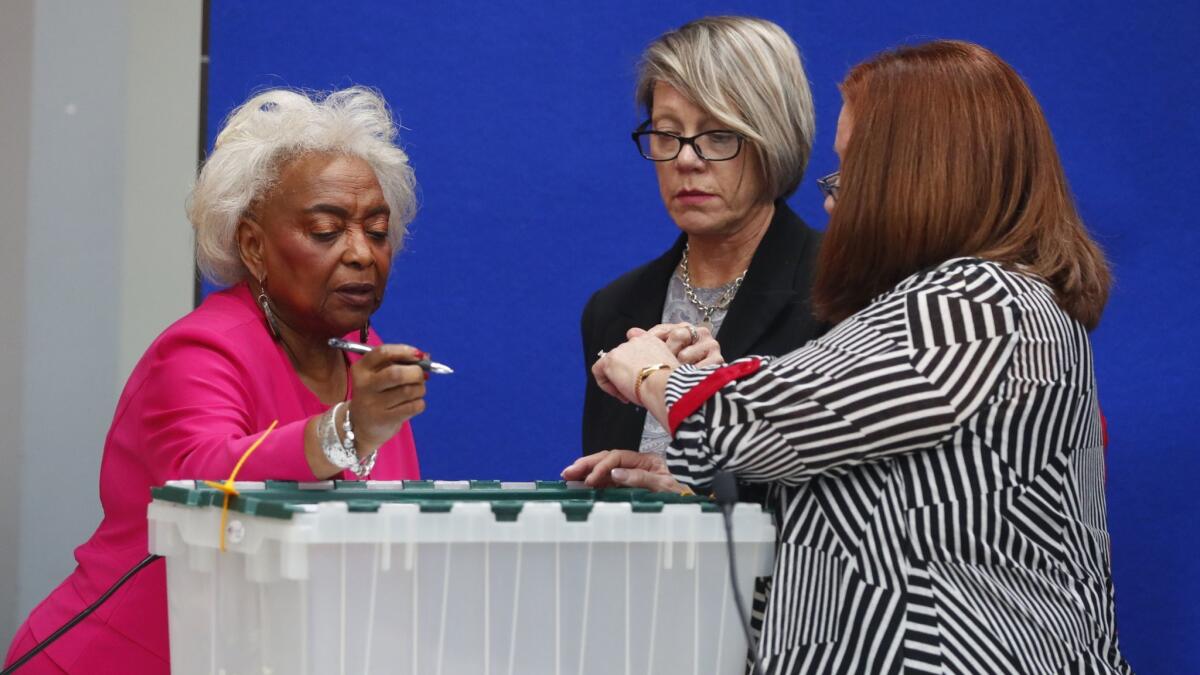
The case can be made that the closeness of the elections in Florida reflects that of the national elections. Since the first presidential election after Watergate in 1976, about 1.2 billion votes have been cast nationally, yet the popular vote differences between Republicans and Democrats is less than 2 million.
The previous two Florida governor’s races, won by Rick Scott, were separated by 1.2% and 1%. The last two presidential elections in Florida had margins of 1.2% and 0.88%. The current governor’s race between Ron DeSantis and Gillum is 0.41% and in the midst of a mandatory recount.
Ron Pierce, a Republican consultant and lobbyist, sees Florida’s growing and changing population as part of the reason for the close elections.
“The people who come to Florida come from different ends of the spectrum,” Pierce said. “You have young people coming here wanting to start a career, and you’ve got people of retirement age coming here to end a career.
“Then you have the urban areas being offset by the rural areas. … Florida is the only large state that is truly purple. New York is blue, Texas is red and California is blue, but Florida remains ultra-competitive because it’s purple.”
But within the state, you can clearly see the divide.
According to Schale, only three of Florida’s 67 counties are not solidly Democratic or Republican. There is Pinellas County on the Gulf of Mexico where St. Petersburg is located, St. Lucie County on the Atlantic where Fort Pierce is the biggest city, and Seminole County, right in the middle, a collar county to Orange.
Outside of those three counties, with a common population of out-of-state imports, you can figure that all your friends think just like you do, helping sustain the polarization of thinking within the state.
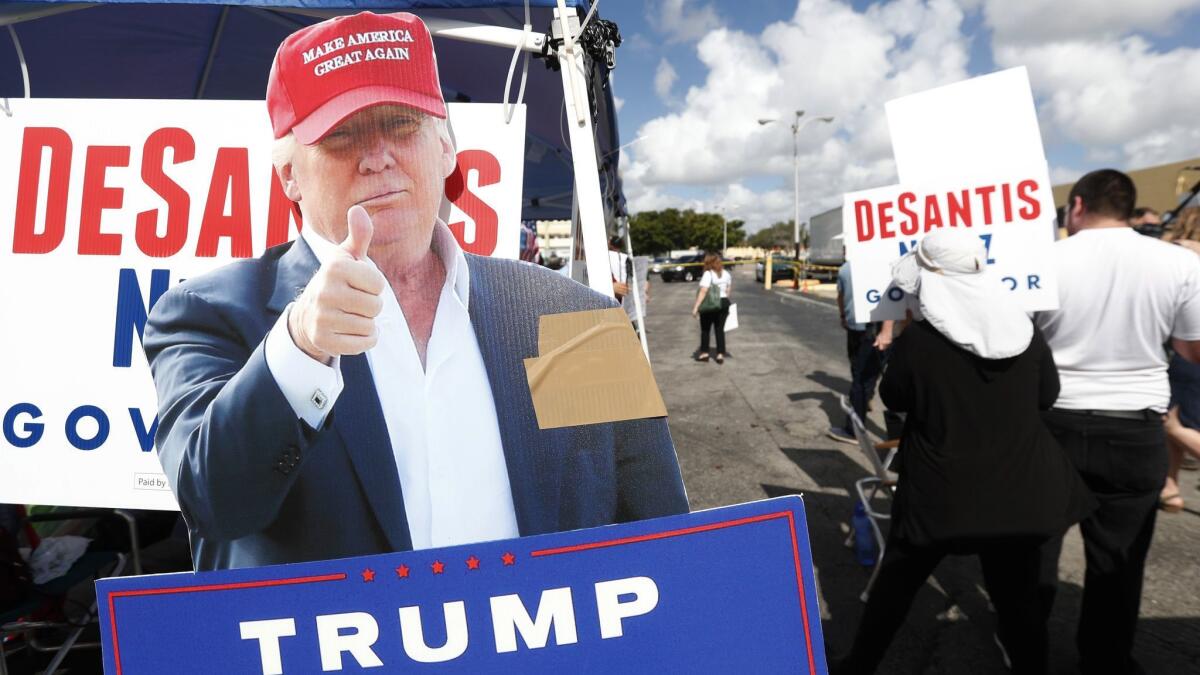
Susan MacManus, a University of South Florida political science professor emeritus, says the roads helped shape Florida’s politics.
“Interstate highways have a lot to do with explaining Florida,” MacManus said. “People from New York, New Jersey, Massachusetts and those states came down on I-95 and settled in the southeast part of the state [near Miami]. People from Michigan, Ohio and Pennsylvania came to Florida on I-75 and settled on the West Coast [near Tampa].
“We have imported our politics from all over the world and all over the country,” she said. “People just bring their politics with them.”
There also seems to be a kind of a Newton’s Law of politics going on, where for every action there is an equal and opposite reaction.
As the Puerto Rican population swelled in Orange and Osceola counties, which would favor Democrats, a massive 125,000 age-restricted retirement community called the Villages sprung up in nearby Sumter, Lake and Marion Counties. It is an automatic rallying spot for all Republican candidates.
“It’s like God has a sense of humor,” Schale said about the constant equality. “Florida is like one big marriage with a Republican husband and a Democratic wife.”
If you match up the country’s percentage of people who live in the urban, suburban and rural areas, it matches up almost identical to Florida.
Florida is like one big marriage with a Republican husband and a Democratic wife.
— Steve Schale, Democratic strategist
“Florida is a melting pot,” MacManus said. “It’s what makes us a microcosm of the country. It just happens that the mix of people who live here, when you aggregate them, we look just like the country at large.”
In the next election, there will be a new class of people who could not previously vote. Last week’s election passed an amendment that most felons would have their voting rights reinstated after their sentence was completed. It could add as many as 1.4 million people to the voter rolls.
“People assume it’s going to help the Democrats more than the Republicans,” Pierce said. “But we don’t really know. Some think it may have the opposite effect and that it’s going to help Republicans as much as Democrats. But are they going to register to vote and be active at the polls? The best answer is we just don’t know.”
Much like trying to figure out winners in Florida politics.
John Cherwa is a special correspondent.
More to Read
Sign up for Essential California
The most important California stories and recommendations in your inbox every morning.
You may occasionally receive promotional content from the Los Angeles Times.

